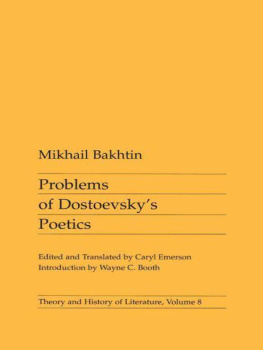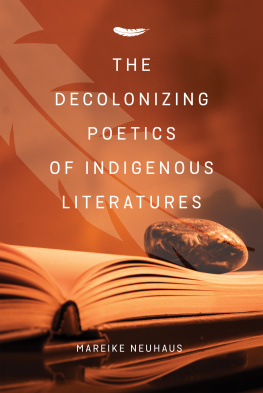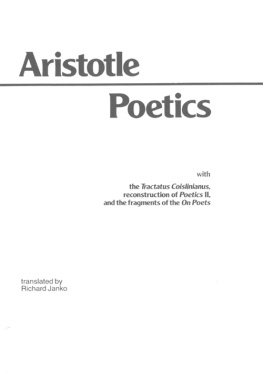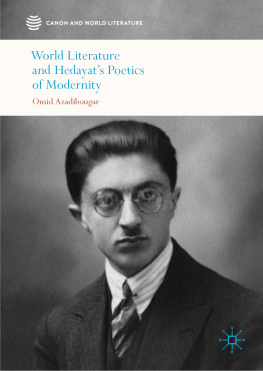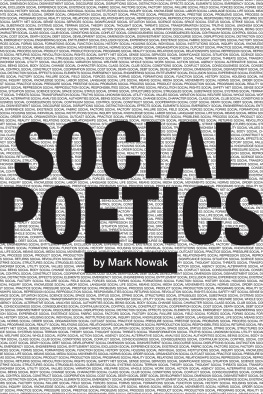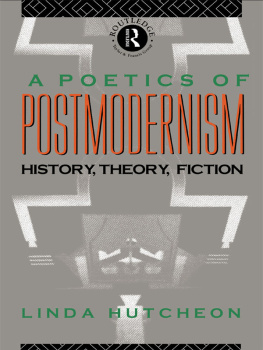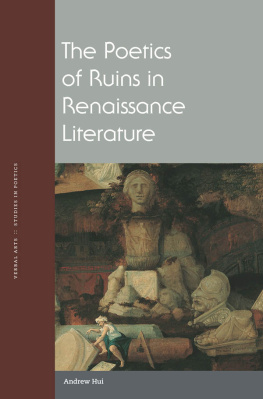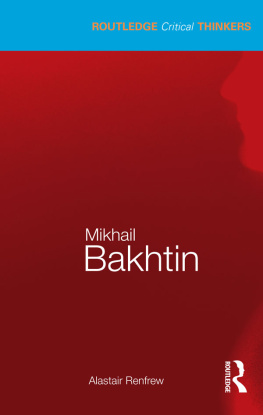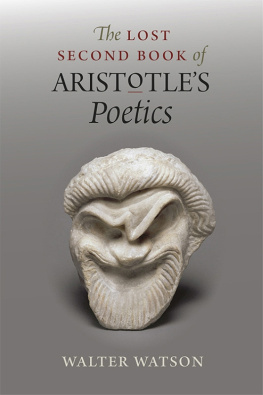Table of Contents
Theory and History of Literature Edited by Wlad Godzich and Jochen Schulte-Sasse
Publication of this book was assisted by a grant from the publications program of the National Endowment for the Humanities, an independent federal agency.
Copyright 1984 by the University of Minnesota.
All rights reserved.
Published by the University of Minnesota Press
111 Third Avenue South, Suite 290, Minneapolis, MN 55401-2520
http:/www.upress.umn.edu
Printed in the United States of America on acid-free paper
Eighth Printing 1999
Library of Congress Cataloging in Publication Data
Bakhtin, M. M. (Mikhail Mikhalovich), 18951975.
Problems of Dostoevskys poetics.
(Theory and history of literature; v. 8)
Translation of: Problemy poetiki Dostoevskogo.
Includes index.
1. Dostoevsky, Fyodor, 18211881Criticism and interpretation. I. Emerson, Caryl. II. Title. III. Series.
PG3328.Z6B2413 1984 891.733 83-12348
ISBN 978-1-452-93116-6
ISBN 0-8166-1228-5 (pbk.)
The University of Minnesota is an equal opportunity educator and employer.
Acknowledgments
Translation is a difficult, time-consuming art, and it fares best when there is no limit to the generosity of ones colleagues and friends. Of the many who have helped, several deserve special mention. Michael Holquist and Katerina Clark, both of Indiana University and long-term colleagues in the task of bringing Bakhtin to the English-speaking public, are a continual inspiration and background presence in this book. Sidney Monas of the University of Texas caught many an awkward phrase or inaccurate reference in the early drafts, and so often came up with just the right solution (it was he who pointed me toward the perfect joyful relativity). Gary Saul Morson of the University of Pennsylvania was, here as always, my most unsentimental and rigorous reader; whenever we have shared an idea or a text he has never failed to turn it into a dialogue, and one by which I am always greatly enriched. My largest debt, however, is owed to Nina Perlina of Rutgers University, whose sojourn at Cornell University as a Mellon Postdoctoral Fellow fortunately coincided with my two years work on this translation. Herself an authority on Bakhtin and a Dostoevsky scholar of the highest caliber, she was unstinting in her generosity toward this project. It was never too late at night to call with a list of impossible words; she was rarely at a loss for a reference or a hypothesis. Our many sessions over the problem areas in this text were a model of scholarly symbiosis, in the best spirit of a Bakhtin circle.
Wayne Booth, Robert Louis Jackson, and Anatoly Liberman read portions of the manuscript and made many helpful suggestions. Marilyn Kann, Slavic Librarian at Cornell University, efficiently tracked down various texts necessary for annotating this edition. For certain details in the apparatus I am grateful to John Bennett, Stephen Farrand, George Gibian, Sander Gilman, Robin Feuer Miller, and Richard Ruppel, all of Cornell University. A special thanks to Philip Holland, who went through every page of the final manuscript with a critical eye, checking all the menippean references for accuracy and placing at my disposal his own work Robert Burtons Anatomy of Melancholy and Menippean Satire, Humanist and English (Ph.D. dissertation, University of London, 1979)a fine integration of Bakhtins ideas on the menippea into Western scholarship. Hollands chapter 2 (Menippean Satire in Antiquity) provides helpful information on many of the writers Bakhtin discusses in his chapter 4.
The staff of the University of Minnesota Press made work on this book a pleasure with their friendly patience and encouragement. Cornell University generously awarded me a Humanities Grant to cover typing costs; Diane Williams produced a beautiful manuscript. Linda Noble and David Sherman worked long hours with me to proofread the text; the latter also expertly compiled the index. And then there are the people less directly concerned with this book who were nevertheless indispensable to its realization: my parents, whose loving intelligence saw me through many difficult moments, and my husband, Ivan Zaknic, whose own passion for translation (although in a different field and from different languages) equals my own, and whose energy and companionship in this project have been at all times sustaining.
This book has been previously translated into English, both in full and in part. The entire 1963 text was translated by R. William Rotsel (Problems of Dostoevskys Poetics, Ardis, 1973), but his version was seriously flawed and is now out of print. Chapter Five, section Two of the Rotsel translation was revised by Priscilla Meyer and Stephen Rudy as The Heros Monologic Discourse and Narrational Discourse in Dostoevskys Early Novels in their Dostoevsky & Gogol: Texts and Criticism (Ardis, 1979). In addition, Richard Balthazar and I. R. Titunik rendered into English a portion of the 1929 text (Tipy prozaicheskogo slova) as Discourse Typology in Prose, in Readings in Russian Poetics, ed. Ladislav Matejka and Krystyna Pomorska (The MIT Press, 1971). I would like to thank my fellow translators for their versions of this difficult text. While my solutions rarely coincide with theirs, they did make possible an occasional dialogue over particularly complex sentences and terms. Thanks to their efforts, Bakhtins text has generated the interest and reputation in the English-speaking world that it so clearly deserves. It is my hope that this present fully annotated edition will help win for Bakhtins voice a permanent place in Dostoevsky criticism, and in the broader area of literary scholarship as well.
Note on the Apparatus
This English-language edition of Problems of Dostoevskys Poetics offers three levels of explanatory apparatus: (1) Bakhtins own footnotes, which are numbered, are reproduced at the end of each chapter. (2) Translators notes, which are lettered, appear at the bottom of the relevant page and cover such problems as critical or generic terminology, puns, untranslatable terms, and the occasional identification of important literary contexts. (3) An asterisk (*) after a proper name or work indicates that biographical information or an explanatory note can be found in the Glossary of Proper Names and Works at the end of the volume.
When Bakhtin quotes Dostoevsky, he does so from the following standard Soviet sources: For fictional and journalistic works: Sobranie sochinenii in 10 volumes (Moscow: Goslitizdat, 1956-58) [referred to in footnotes as SS ] or Polnoe sobranie khudozhestvennykh proizedenii in 13 volumes, edited by B. V. Tomashevskii and K. I. Khalabayev (Moscow-Leningrad: Gosizdat, 1926-30) [referred to in footnotes as PS ]. For Dostoevskys letters: F. M. Dostoevskii, Pisma in four volumes, edited by A. S. Dolinin (Moscow: 1928-59) [referred to in footnotes as Pisma ].
Wherever possible I have replaced these quotations with passages from standard translations of Dostoevskys works. References to these English-language versions are appended to Bakhtins footnotes or, in the text itself, to the quotation. There is no complete or authoritative English edition of Dostoevskys correspondence, so all translations from the letters are mine. If there do exist English versions of the critical literature mentioned by Bakhtin in chapter 1, I have so indicated and provided page references. Listed below are the standard translations of Dostoevskys work used in the text:



